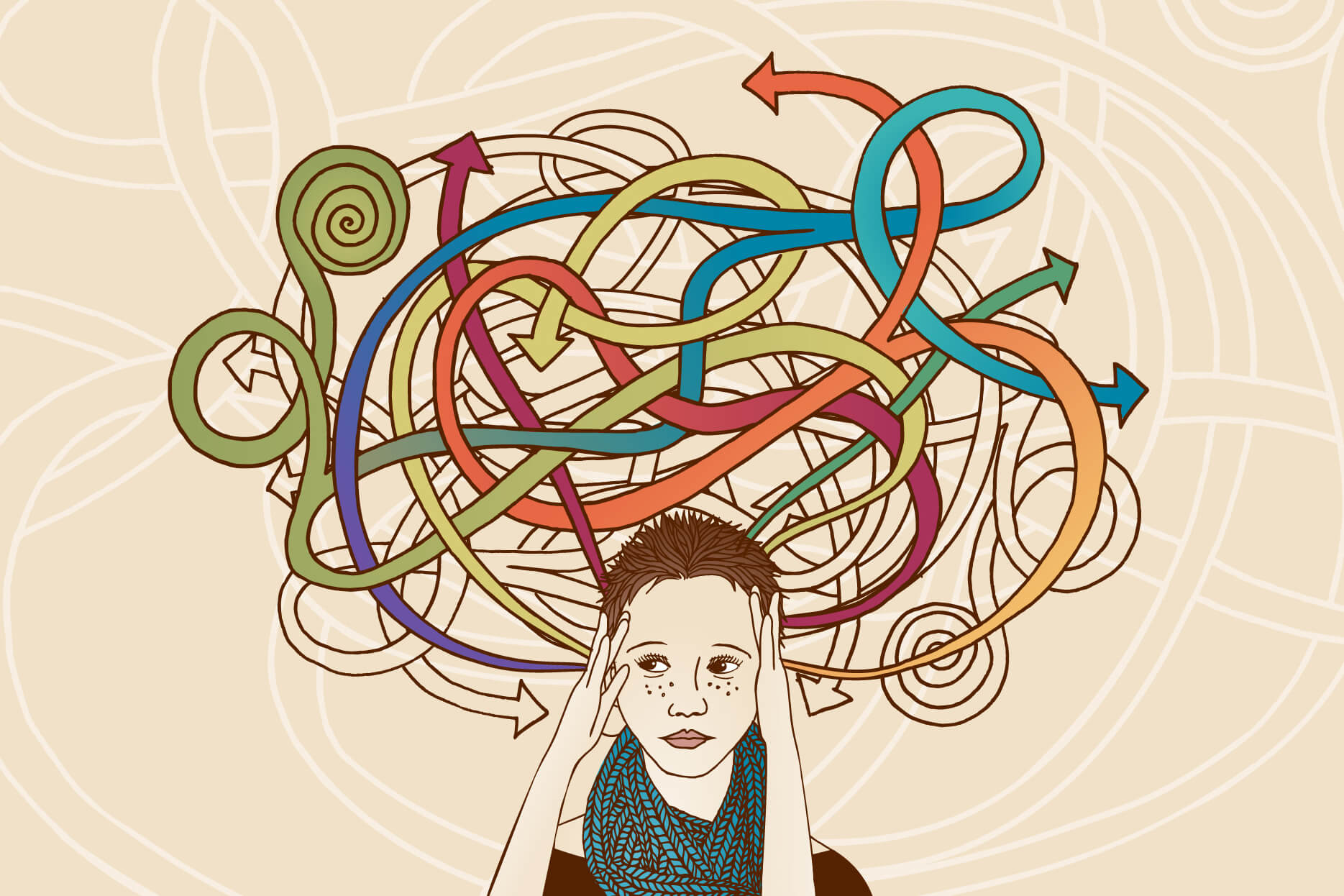This year is shaping up to be one of the hardest years yet to be a queer or trans journalist in America.
A legislative blitz of more than 450 anti-LGBTQ+ bills has hit statehouses across the country. Add to that a near-constant cycle of debate in the political arena — over everything from trans rights to drag queens — and it can be debilitating to absorb all of the hate aimed at LGBTQ+ people.
So, what’s an LGBTQ+ journalist to do? How do we report on these mounting atrocities while protecting our mental health? What should newsroom leaders be doing to support us at this moment? And where do we draw the line of “objectivity” when our own rights are under attack?
“There’s a heightened level of scrutiny now for every LGBT person who is writing about the trans or anti-LGBT laws, that somehow we have this agenda or this political motivation, when really all we’re talking about is being fair and accurate in our coverage,” said Ken Miguel, president of the board of directors for NLGJA: The Association of LGBTQ+ Journalists, and a special projects producer for ABC7 in San Francisco.
A long history of double standards
This is not the first time that LGBTQ+ journalists have had to deal with questions about their ability to cover their own community.
When Miguel wanted to report on the early days of the marriage equality debate in California in 2004, there was some question about whether he, as a gay journalist, should be allowed to cover the story at all. His TV newsroom decided that “having somebody with intimate knowledge of the ‘other side,’ so to speak, was more beneficial than harmful,” he said, and Miguel was allowed to cover the story. But it wasn’t easy.
He and a lesbian photographer conducted an interview with a lawmaker in Sacramento who was opposed to same-sex marriage. The pair tried to brace themselves; they knew the politician was likely to say some hateful things about gay people. The conversation left a mark, and they spent the drive back to San Francisco processing what they had heard. “Looking back, I can say it was traumatic,” Miguel said.
Decades later, he still covers plenty of LGBTQ+ topics, and still faces questions about how best to handle them.
“It’s nonstop, especially considering what’s happening to our trans folks,” he said.
He works with editors and producers to make sure language is accurate, and that all sources are treated with respect. “It’s the burden of being the gay person in the newsroom,” Miguel said. “You become the resource for everyone else.”
But even with supportive managers, and a growing population of openly LGBTQ+ reporters, questions linger about how to approach some stories.
‘All we can do is inform people what the facts are’
There’s a traditional idea of fairness in journalism that looks something like this: When reporting on a controversial or political issue, reporters should generally seek out “both sides” and treat them with equal weight.
Journalists often default to this mode of reporting as second nature. If a law is proposed in a state legislature, for example, journalists seek out both Republicans and Democrats for comment. Or if a city wants to redesign a highway, they would talk to those in favor and those opposed.
This may seem like a perfectly fine way of doing things — and sometimes it is — but there’s a growing understanding that both-sides journalism is not always a responsible method of reporting. When we look back at the coverage of global warming in the early 2000s, for example, we can see now that this traditional attempt at balanced reporting gave readers a false impression. It framed what was, even then, a broad scientific consensus that humans were causing climate change as a debate.
A similar dynamic is now playing out for LGBTQ+ reporters. What happens when you’re queer or trans, and the “other side” is arguing that you shouldn’t be able to get married, or get medical care, or even exist in public?
“I think sometimes LGBT people give the opposing point of view too much credit because they feel they have to overcompensate,” Miguel said. It’s better for journalists to resist this impulse, he advised, and instead anchor their reporting in the facts. He cited the debate over gender-affirming care for trans youth.
“You have the entire medical community reinforcing that this is life-saving care,” Miguel said. “And then you have lawmakers who are trying to remove those rights from people and that care from people, without any knowledge. … Is that a fair argument? Is that fair reporting?”
He said he would argue that it isn’t. Reporters can’t put the genie back in the bottle, but they can report that the person making the anti-trans argument does not have any medical degree, or is not qualified to speak on the topic.
“It’s very important that we report fairly and accurately, is what it all really comes down to,” Miguel said.
Kae Petrin, a co-founder of the Trans Journalists Association, said that newsrooms shouldn’t pin questions about objectivity solely on the shoulders of LGBTQ+ journalists.
“There are a lot of important conversations to have about objectivity in news,” said Petrin, who is a data and graphics reporter at Chalkbeat. “I’m troubled by the frequent impulse to come to trans journalists to talk about these conversations about objectivity and humanity in news cycles like this.”
Indeed, gender and sexuality are not the only relevant identities that reporters may hold. When there were questions about the gender identity of the shooter at a Christian school in Nashville, some assumed that Petrin’s identity as a nonbinary person was most relevant to the story. But they also have experience attending a private Christian high school, and experience with lockdown drills, and distant relatives who are recreational gun owners. All of those factors could affect their objectivity, too, Petrin said.
That’s why these questions about ethics and neutrality should not be limited to the queer and trans community; they should be newsroomwide conversations.
“Any and all reporters should be thinking about our own personal relationships, biases or not, to the issues that we’re reporting on,” Petrin said. “Pretty much everyone, regardless of identity, should be thinking about their role.”
‘It puts a lot of individual onus on reporters’
The hostile political climate toward LGBTQ+ people means that journalists also need to consider their mental health.
“If part of my job is going to entail putting myself in situations in which I might feel psychologically unsafe, then part of my job always needs to be establishing that sense of psychological safety,” said Madison McCullough, a queer psychotherapist and clinical supervisor in private practice in New York City.
Therapy is one place an LGBTQ+ journalist can find that safety, of course. When McCullough’s clients express fear, anger or dismay at the state of politics in the U.S., she starts by normalizing their emotions as a reasonable reaction.
“People are challenging their right to exist,” she said. “It makes it hard to find a sense of stability and a sense of home in this country, really.”
Then McCullough emphasizes the importance of community and chosen family, helping clients think about where they can go to feel supported and celebrated in their identities. There might also be a conversation about channeling anger in a productive way.
For those, like journalists, who might be put into environments (or entire states) where their identity puts them at physical or legal risk, she talks about creating a safety plan.
“Safety plans can exist from micro levels to macro levels, but I think they allow folks to have a little more of a sense of control,” she said. That might involve location-sharing with someone, or asking a friend to check in periodically, or having a set place to retreat to at the end of the day.
Counseling isn’t the only way to tend to mental well-being. McCullough uses a weekly singing lesson to decompress. “That, for me, is huge, and it’s centering, and it just balances out my week,” she said.
Journalists should also consider speaking up in the newsroom if they feel like they’re not being supported by their editors, or that they’re being tokenized.
“It’s vital for that news to be covered by queer and trans people, I think that that lens is so important, and that they need support and it will probably be harder for them to be doing that work,” McCullough said. “And so it shouldn’t just be assumed that because they’re queer and trans, that that’s the story they want to work on.”
Petrin also said that LGBTQ+ reporters should not have to muddle through on their own.
“It puts a lot of individual onus on reporters to be managing these things that, frankly, our newsrooms should be responsible for to some degree,” they said.
At Chalkbeat, the education-focused nonprofit news organization where Petrin works, there’s training on how not to traumatize sources and how to avoid extractive interviews. But they said these concerns should also be extended to the reporters themselves, with more robust policies and resources to support them.
The Trans Journalists Association recently held a virtual drop-in space for reporters to come together and decompress during intense news cycles. Miguel, from NLGJA, says that the organization regularly sees high attendance at mental health-related panels at its conferences, and suggests joining his or a similar association.
“These organizations are extremely important … to find your tribe, to find your network of people,” he said.
But none of this is one size fits all. Stresses are different from newsroom to newsroom, even beat to beat. Editors and managers need to listen to their employees and respond to their needs, Petrin said.
“Our newsrooms should be thinking about ways to make that work sustainable and minimize burnout,” Petrin said.
This article was made possible thanks to the support of the Gill Foundation.
This article was updated to more accurately describe Kae Petrin’s family.







